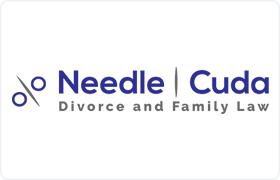Danbury Child Custody Lawyer, Connecticut
Sponsored Law Firm
-
 x
x

Click For More Info:
-
Needle | Cuda: Divorce & Family Law
830 Post Road East Suite 301 Westport, CT 06880» view mapDivorce & Family Law Experienced. Savvy. Straightforward.
At Needle | Cuda, we know when you come to see us that you may be going through the most difficult time of your life. That is why we style ourselves a “high touch” law firm.
203-557-9500
Includes: Guardianships & Conservatorships, Custody & Visitation
Judith Goldberg
Divorce & Family Law, Family Law, Divorce, Child Custody
Status: In Good Standing Licensed: 37 Years
Elizabeth A. Edwards
Divorce & Family Law, Divorce, Family Law, Child Custody
Jean S Ferlazzo
Art, Custody & Visitation, Child Support, Social Security
Status: In Good Standing Licensed: 47 Years
 Melissa Needle Westport, CT
Melissa Needle Westport, CT Practice AreasExpertise
Practice AreasExpertise
